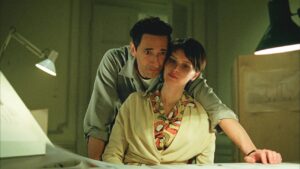Macario (1960)

…………………………………………………
Macario Movie Review
Macario is a 1960 fantasy film directed by Roberto Gavaldon and starring Ignacio Lopez Tarso and Pina Pellicer. It is a classic of Mexican cinema and a wonderful genre movie.
………………………………………………….
“In this life, we are all born to die“
………………………………………………….
………………………………………………….
Poor and hungry peasant Macario wishes to have a good meal for All Saint’s Day. After his wife cooks him a turkey he has three apparitions: The Devil, God, and the Death. As a huge fan of ‘Pan’s Labyrinth’ and most of Guillermo del Toro’s opus, I was most content to realize that this film was done in a similar vein. It preceded that masterpiece, showing the world just how potent Mexican fantastical storytelling is.
I have always loved mythic, fantastical and fable storytelling, but it’s the type of story that very often gets ignored by Hollywood. Thankfully, we have other parts of the world and in this case Mexico to thank for giving us this masterpiece of fairy tale storytelling. It is a story that is so old-fashioned for better and for worse that it could have been told centuries ago and you would believe that it was that old.
The Devil and God are such memorable, intimidating figures and they were wonderfully performed without ever being too stagey and/or stilted. Death himself was particularly creepy as he almost never spoke and instead focused on utter silence and saying so much with so little. All of his scenes were very effective and quite powerful.
………………………………………………….
………………………………………………….
Macario himself made for such a likable, endearing protagonist. Yes, he may seem too naïve at times, but similarly to Snow White from the eponymous Disney classic, it is very difficult not to fall in love with this man and root for him from beginning to end. He’s such a sweet soul that the ending was even more touching because of his innate goodness and childlike personality.
Then we have Pina Pellicer, an actress who delivered the best performance of the entire cast. In the ending itself she was particularly effective at conveying so much emotion. Their relationship was charming and believable. Pellicer died very young at just the age of thirty, but she at least has this role to forever cement her status in Mexican cinema history.
Macario the movie could have definitely been longer and it should have developed its characters and some major plot points more. But the pacing, editing and directing are mostly fantastic and the same goes for the movie’s tone and atmosphere, which ranged from dramatic to comedic, from fantastical to horror-influenced. Some moments are quite creepy while the satire is always present and a great emphasis on the human condition as the director and the book author this movie is based on really understood all of our most human insecurities and frailties.
………………………………………………….
………………………………………………….
Visually speaking, Macario soared. This is one of the best-looking films of its era, period. Even Hollywood films of the time could rarely compete with the majesty of this movie. The cinematography is striking, the production design mesmerizing and the film is utterly transporting and believable as a fable/fairy tale because it looked so ethereal and timeless. Couple that with a grandiose, incredible score that is also fittingly old-fashioned and you’ve got a movie that aged like fine wine and is still immensely enjoyable to watch.
Visually dazzling and gorgeously scored, Macario is an early classic of Mexican cinema that is particularly well acted, edited and directed. It represents the type of fable/fairy tale storytelling that we rarely see in Hollywood, but that was superbly crafted here. The movie changed its tone from dramatic to comedic to even creepy while remaining consistently engaging, charming and timeless in its wonderfully old-fashioned fantastical elements.
My Rating – 4.5
This is the 4th film in my American Cinema Marathon where I will watch one film from each American country every day. Next up is 🇸🇷.











